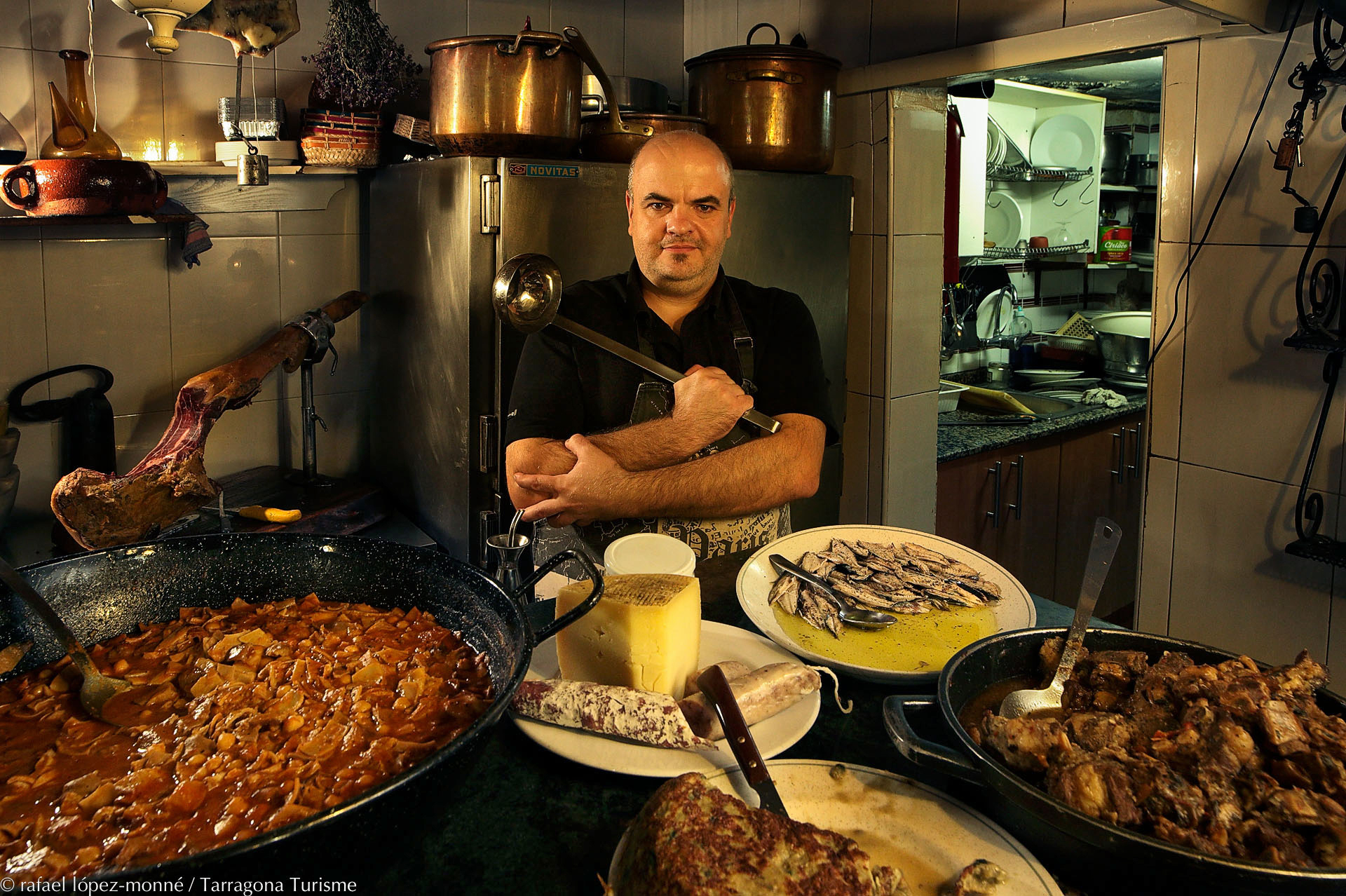Thursday, 9am. A number of blue collars and retired men at 27, Rebolledo St. The tavern ‘El Cortijo’(typical South Spain country house) of Tarragona has no patio nor it is very wide: it can cope just with everyone when full of regular customers. The fact is that Santos Masegosa, the stoves’ foreseer, cooks abracadabrish callos (pork tripe traditional dish), pure culinary magic. Cod omelette, pig’s trotters with ‘romesco’, fried anchovies… the main ‘El Cortijo’ credentials smoke on the counter while pulling gluttons all over, and even some tourists.
The bar was first opened in the 70’s by Santos’ parents ¬–Santi, to his friends-, original from Granada, in the place where brothel used to be. From then on, the world has been spinning around, a lot, and one could say that ‘El Cortijo’ has stayed still. Looking things from a perspective, as grannies say, tends to improve everything. And the truth is that decoration in ‘El Cortijo’, a little bit kitsch, has remained so old-fashioned that one get to like it. So old and rich like the great variety of ranxets (little meals) served by Santi and his brother Lluís who grew up behind the counter. Unmissable.
Judges, priests, teachers and dockworkers, men and women of all kind: friendship has always been reinforced by a proper meal. The so-called fork-breakfasts are part of this popular costume, but it’s getting harder and harder to find establishment where cassolades (meals cooked using big pans) and high-quality popular cuisine still call the tune. Taverns and ‘garitos’ (dives) are now called cafés; inns and eateries, restaurants. The gastronomic standard has been internationalized, getting more sophisticated. Cooking is losing its roots while growing new ones. ‘El Cortijo’, a survivor, feeds itself from old seeds: our grandma’s cookbook.
‘I have not created anything. If anything, I have adapted something’, says Santi modestly. In order to pick this ‘something’, the one to be eaten, one must follow a ritual also near extinction. The bar has no such thing as a menu. The dishes and the pans are shown all over the counter. Hotpots, entrails, romescos, rice dishes… they get into everyone’s noses and eyes. There is no turning back now. No one can fight hunger. Mouths and stomachs take control of the situation; symphony time at ‘El Cortijo’. Cutlery, glasses, tables and some chatting dominate it all, and get a beautiful harmony in the place. It is as amazing as the fact that this bar has the best and widest selection of wines original from Tarragona. On this matter, one should ask Santos for advice, since he is a real expert.
Expert on wines, and on many other things, as well. Like on the reason why the ‘El Cortijo’ parish attracts so many believers, but not many young faces: ‘We have no lemon ice-tea cans in here, nor energy drinks. We use water, beer or wine with soda water to force food into our stomachs. When someone is young, he feels like getting late everywhere. When older, waking up early on a Saturday to meet his friend around a juice breakfast becomes his most precious wish’.
It could seem that Santos is only trying to save his business. And indeed he does; but not just this. Santi and Lluís are keeping part of Tarragona’s identity, and they do it consciously, because they feel like it. ‘My battle is the kitchen. These day people forget the importance of simple things. It’s almost as if it would be impossible to eat proper fish without spending a fortune, but species like the dolphin fish, the gummy shark or the flying squid, which are not very well-known, are really good and versatile. We need not much to eat well’, he states. We could say it louder, but not clearer. Viva the food!
Text: Oriol Margalef (@ohmargalef a Twitter)
Photography: Rafael López-Monné (@lopezmonne a Twitter)




